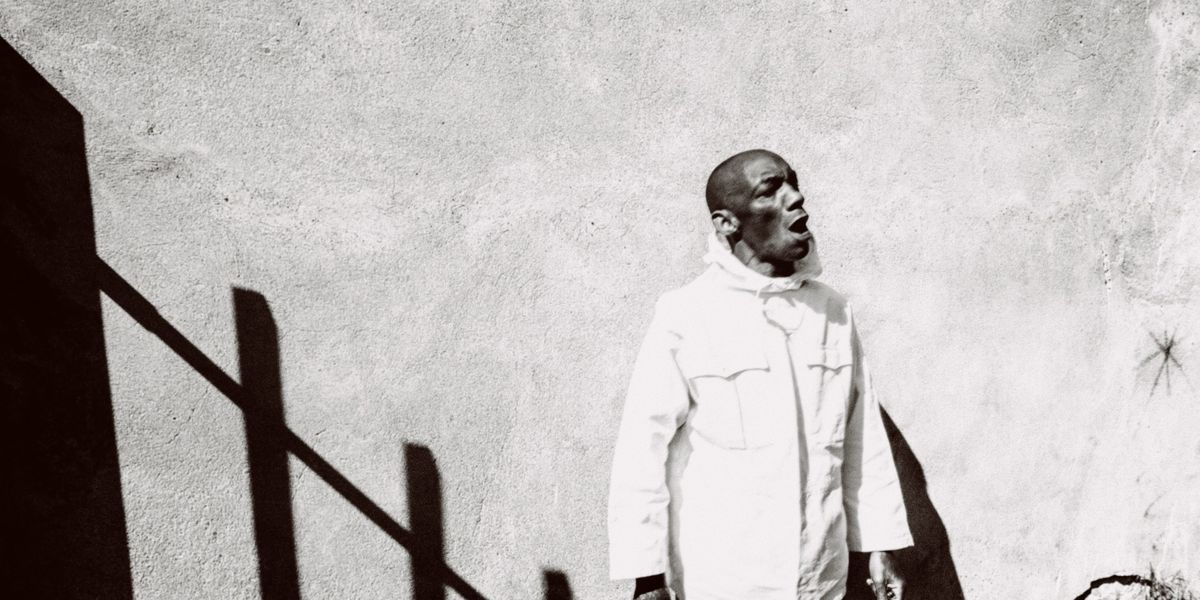It’s been 25 years since Maxinquaye, the trip-hop classic that shook the world. Since then, Tricky—the stage name of Adrian Thaws—has been living in its shadow. It’s as though every new Tricky album comes prepackaged with the disclaimer: “Not bad, but it ain’t Maxinquaye.”
Virtually any artist is bound to come back down to earth after an album like Maxinquaye. You can only reinvent the wheel so many times, or pioneer a genre for so many years. And Tricky spent the entire 2000s coming back down to earth, with overdone, blustering rap-rock experiments like Blowback, Vulnerable, and Knowle West Boy. But the 2010s signaled a new chapter in the veteran’s career, a return to the risk-taking of his early work. In 2013, Thaws roared back with the gun-slinging, industrial-tinged False Idols, one of the finest trip-hop LPs of the past ten years. He followed it up with the equally marvelous Adrian Thaws, probably his most club-ready album to date.
Since then, Tricky’s been in a bit of a funk again. Lo-fi R&B projects like Skilled Mechanics and ununiform felt murky, underdeveloped, and decidedly unambitious. Which is no surprise, of course—the only real narrative to Tricky’s career is that you never know which Tricky you’ll get next. His music is by equal turns surprising and frustrating, full of twists and turns, peaks and valleys.
However, if there’s anything Tricky does exceptionally well, it communicates pain, tragedy, and suffering through his music. Tricky is no stranger to such things. His father left before he was even born; his mother committed suicide when he was four. He grew up in a violence-ridden neighborhood of Bristol, and most recently, in 2019, his daughter took her own life. Yet Tricky’s ability to keep churning out music despite all he’s been through is nothing shy of incredible. Tragedy has always played a huge part in his music, but on his latest LP, Fall to Pieces, it plays a bigger role than ever before.
There’s barrenness to the music here that oozes grief and loss. It’s an album of skeletal drums, eerie slide guitar, and the usual raspy, half-whispered vocals we’ve come to expect from Tricky. The lyrics are so blunt, so bare-bones, they feel cooked up on the spot—half-formed, stream-of-conscious mutterings like “Hardly sleep now / Hardly here now / Stare into space / Ending this race” and “Is it real / And it hurts to feel / Goodnight, my love.” Nowhere is the pain more keenly felt, however, than on “Hate This Pain”. In a voice wracked with anguish, Tricky sings: “At ten, I’ll take a flight / Try to be there, I guess I might / I miss my baby while I fly / In my head I want to die.” The lyrics convey a father numb with grief, indifferent to the mundane demands of work and travel, almost sleepwalking through life. They aren’t meant to be poetic—they’re meant to convey raw emotional pain in the most naked terms.
Most of the album is not sung by Tricky, however. Thaws has always had a reputation for collaborating with female vocalists—most famously Martina-Topley Bird, who sung most of Maxinquaye. Here, the trip-hop veteran enlists Marta Zlakowska, who sings on nine of the 11 tracks. On the other two, he features Oh Land, the project of Danish-singer Nanna Oland Fabricius. Their presence adds a soothing counterpoint to Tricky’s tortured singing.
Unfortunately, Marta—and Oh Land, to a lesser degree—end up carrying too much of the weight here. Fall to Pieces gives the impression of an artist struggling to sustain his vision, leaning on his collaborators to make up for its lack. Like on the last two albums, Tricky sounds too restrained here. His half-whispered, mumble-sung vocals make his presence feel too remote, too detached to convey the lyrics’ pain. And the electronics are threadbare and undercooked, giving the music a rushed, half-finished quality. The tracks feel more like sketches or ideas than actual songs—after all, only three of them even crack the three-minute mark.


